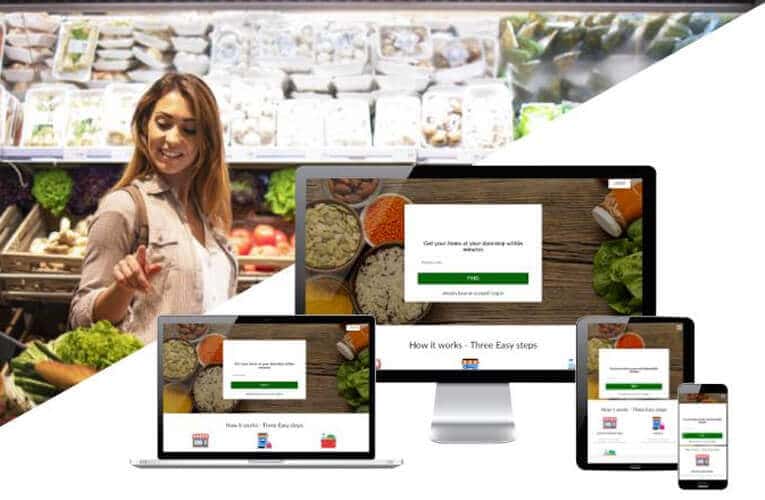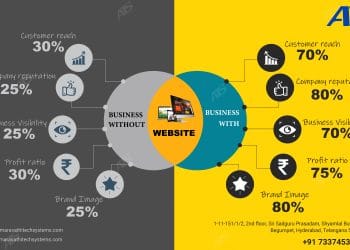Ecommerce, also known as e-commerce or online exchange, refers to the purchase and distribution of goods or services via the internet, and the conversion of money and data to perform those transactions. Ecommerce is mainly used to refer to the online selling of physical goods, but it may also describe some form of commercial transaction facilitated through the internet.
Whereas e-business refers to all aspects of operating an online business, eCommerce refers specifically to the transaction of goods and services.
The history of eCommerce begins with the first-ever online sale: on August 11, 1994,, a man sold a CD by the band Sting to his friend through his website NetMarket, an American retail platform. This is the first example of a consumer purchasing a product from a business through the World Wide Web—or “e-commerce” as we commonly know it today.
E-commerce has now grown to make goods more discoverable and cheaper to shop through online stores and marketplaces. Independent freelancers, small companies, and big corporations have all benefited from e-commerce, allowing them to market their products and services on a rate unimaginable with conventional offline retailing.
Types of Ecommerce Models
There are four main types of eCommerce models that can describe almost every transaction that takes place between consumers and businesses.
1. Business to Consumer (B2C):
When a company offers a product or service to an individual customer ( e.g. from an internet store, you purchase a pair of shoes).
2. Business to Business (B2B):
If a corporation provides a product or service to another enterprise (e.g. a company offers software-as-a-service for use by other companies)
3. Consumer to Consumer (C2C):
If a customer sells a product or service to a particular consumer ( e.g. you sell your old furniture to another user on eBay).
4. Consumer to Business (C2B):
Where a customer sells their goods or services to a company or association (e.g., an influencer gives advertising to his internet followers in return for a commission, or a photographer licences his photo for a company to use).
The e-commerce sector is seeing a widespread growth in India driven by internet penetration and booming smartphone industry. Internet connectivity ‘affordability acts as a blessing for the e-commerce industry, encouraging many small retailers to join the field of e-commerce.
Market statistics suggest that the Indian eCommerce market is growing at a rate of 25%, all set to hit the $100 billion mark by 2022.
Following the latest trends of bringing the company online, many small and medium-sized retailers in India realise the advantages of eCommerce. Hence they are happy to mark the steps of their new business journey with their online stores.
You can benefit from selling online in India in more than a couple of ways. Here are a few-
- Flexibility.
- Faster order processing.
- Reach to a greater audience.
- More low-cost marketing channels.
- Easier Order Management.
- Attractive growth opportunities.
Different Ways to Setup Your eCommerce Business in India
It depends on your business model and requirement that how you would like to set up your new eCommerce business. There are two easy options to choose between when setting up your company online:
- Building your eCommerce Website
- Joining an established eCommerce Marketplace
Building Your eCommerce Website
Starting your eCommerce venture is a rather difficult option to choose as it requires website development, payment gateway integration, online marketing set-up, logistics implementation, and more. Yet getting an online shop would help you create a brand identity for yourself and it’s a really good long-term growth plan.
Joining an Established eCommerce Marketplace
Being a part of an established eCommerce marketplace is a comparatively easy way to start selling your products online. To become a part of an eCommerce marketplace, all you need to have is a bank account and a Tax registration number so that you can apply easily. The marketplace will take care of everything, i.e. website design, website creation, infrastructure, promotion, payment gateway etc. A seller can also enter several e-commerce marketplaces to mark their online presence, making it easier for them to begin their online business.
Why you should create your online shop
It’s a question many businesses will have asked themselves over the past few years, as online retail has grown year after year. Some business owners may think they have missed the boat, but it’s never too late to launch a site and start selling online.
There are several compelling reasons to create an e-commerce website….
The size of the market and opportunity
Online retail has grown steadily over the past decade, with year on year growth between 10 and 18% since 2009. It continues to grow and will do for some time. Moreover, internet use is higher among younger age groups, so the trend is that more and more people will move online.
Roughly 14% of all retail sales took place online in 2016, with many more sales influenced by the web. According to stats, 87% of UK consumers made at least one online purchase in 2016.
In short, selling online gives retailers access to a bigger market than they could reach elsewhere, and represents a massive opportunity for retailers to grow their businesses over the coming years.
Your competitors are going online
More small businesses than ever are now selling online, with more planning to take the plunge in the coming months. Indeed, according to the SME Growth Tracker, 64% of small and medium businesses are currently selling online, with almost 90% planning to by the end of 2018.

This can work in several ways. If your competitors are already selling online, this gives them an advantage over you, as they can grow and reach more customers than you can. If they’re offering competitive prices and a strong online presence, they may be acquiring customers which could have been yours.
The flipside,, of course, is that you can expand your online presence and gain a head start on competitors while they’re still thinking about setting up an e-commerce site. And, if they’re already selling online, then you have the chance to expand your business, learn from competitors and do a better job than them.
It can improve the performance of physical stores
Your offline store, or stores, maybe the focus of your business, but any kind of online presence can help to improve the performance of stores by raising awareness.
An online presence through Google Business listings and social media profiles helps to get the word out about your products and services and also increases awareness of your shops. These methods are effective, but an online store provides you with an effective presence you can control.
As well as directly selling online a website can be used to view stores information, from opening hours to special events. It offers a portal for people looking for your products online, one that you have full ownership over.
Appeal to a global market, 24/7
The beauty of the internet for retailers is access to a massive potential market. Whether you have one store or you’re an established international retailer, you have access to the same potential audience through an e-commerce site.
Your website can be visited by any customer in the world with an internet connection, which opens up a whole new international marketplace. Yes, there are considerations in terms of delivering to different countries, but the opportunities are massive.
A more level playing field
On the high street, smaller retailers can struggle to compete with the deep pockets of larger retailers, who can buy the most prominent retail premises and invest in chains of stores.
Online, it’s different. It may not be a level playing field, as larger retailers have the resources to spend more on website design, customer service, and marketing. However, it’s possible to compete with the big guys online, if you have the products people want, provide a great experience for customers, and use your skills to be as visible as possible for customers.
Project a more professional image
A website can be seen as a signifier that you’re a serious and trustworthy retailer by potential customers. It tells them that you’re professional enough to have created a website from scratch to sell your products and services.
The ability to gather data
The data you have about your customers can make a big difference to the way you sell to people and your marketing efforts. Of course, selling offline only, you’ll still have data on when customers shop and the items they buy, but e-commerce opens up a whole new range of data for you.
For example, you can learn from browsing patterns and the way people use your site to make improvements while identifying key customer groups enables you to focus on the most valuable segments. Data allows you to constantly improve your website to maximize sales and revenue.
Building a marketing database
Selling online allows you to acquire customers’ email addresses and get their permission to market to them in a way that would be much harder to carry out offline.
Improved customer retention
Selling online means you can appeal to a broader customer base and retail customers, even if they are unable to visit your store. It allows you to learn about customers and use strategies to increase the number of repeat purchases.
Amazon and eBay are useful, but no substitute for your site
Many smaller retailers use marketplaces such as Amazon, eBay, or Etsy to test the waters online, and may not move beyond these channels.
They have their place of course, but there are drawbacks. Seller fees and other charges eat into profit margins, while your ability to grow your brand and deal with customers more directly is limited.
It may be harder to access such a large potential customer base through your online shop, but long-term it provides the best way to grow your business and profitability. Besides, you can sell through your site as well as marketplaces, they’re not mutually exclusive.
It’s not as complicated as you might think
Selling online may seem daunting to some retailers. It may seem too technical or time-consuming, but it doesn’t have to be difficult.
Sure, you can build your site from scratch if you have the skills (and the time) but there are now plenty of off the shelf solutions that make it easy to get selling straight away.
Steps to Start Your Own eCommerce Business
Here we outlined the initial steps involved in launching your online business and immediately start selling items:
Company Registration
Before you start, you must register the business or LLP, so that you can easily open your bank account under the company’s name and obtain GST registration documentation. Both eCommerce marketplaces allow online retailers to be licenced to sell on their website, but no limited liability insurance would be offered for the lawsuits. So beginning with an LLP or a business is better.
Tax Registration
Registration with GST and other tax norms is a necessity to begin selling online, it does not matter whether you are starting your online business website or selling on a marketplace.
Open Your Business Bank Account
If you effectively register your corporation or an LLP, the next move will be to apply for a bank account on your online venture ‘s behalf. If you are starting a company so you must have a GST certificate in the company’s name to open a bank account.
Payment Gateway
The next step would be to have a payment gateway integrated with your eCommerce website to allow customers to make their payments through credit cards, debit cards, internet banking, etc. With a digital payment gateway set up in its place, the customers can make the payment online which automatically gets transferred to your business’s bank account.
Integrate eCommerce Shipping Solution
The next move for you after you have issued the order is to set up the logistics portion. A logistics company in the field of eCommerce can help you distribute your sold goods to your customers at their listed destination.
You don’t have to purchase a different payment gateway or delivery service provider if you intend to sell to the marketplace. These specifications are taken care of independently by these marketplaces.
Before beginning an online enterprise, apart from these simple steps, one must ensure that all the legalities of the company are followed. To maintain clarity in the company, you must supply your business practises, contact details and disclaimers.
If you are running a retail shop, you determine what kinds of items to sell, how to organise them, and the layout of the interior of your shop. With an eCommerce website you can do the same but you need the right tools to help make your online store work.
E-Commerce platforms let you build an online store from scratch, sell your products or services, and even manage marketing tasks like sending email announcements. Here we present the best website builders in eCommerce to help you run a profitable online shop. Take a look at these sites, and see which one suits the brand better.
What Makes a Great eCommerce Platform?
All good eCommerce platforms let you build your online store from the ground up, starting with store design. But if it’s your first time building an online store, you’ll want something with an easy-to-use interface. More experienced shop owners, on the other hand, may like complete control over all facets of their store at the expense of more difficulty. Since we’ve tested out hundreds of such methods, we’ve decided which ones are best for all markets.
We’ve also learned which features and options are necessary for anyone starting an online store. We’ve only chosen eCommerce platforms that come with the essential tools you need to get started.
Overall, these vital features allow you to:
- Design your storefront, using code or built-in themes
- Sell physical or digital goods and process payments through a built-in shopping cart or a third-party app
- Maintain an online store for a reasonable price
- Keep track of orders and shipping
- Integrate add-ons and other tools as helpful additions to your store
The 13 Best eCommerce Platforms
- Shopify for getting up and running quickly
- Square for selling in-person and online
- Selz for a full-featured drag-and-drop store builder
- OpenCart for total customization
- BigCommerce for access to multiple storefronts on one platform
- Gumroad for selling digital products
- 3dcart for built-in marketing and management features
- Big Cartel for smaller stores with custom products
- WooCommerce for adding a shopping cart to an existing WordPress site
- PrestaShop for a free platform
- E-junkie for selling across multiple platforms
- Ecwid for selling on social media
- Wix for simultaneously creating a store and a blog













Thank you for share us. For more information visit our Best Web Development Company in Hyderabad
Good article! We are linking to this particularly great article on our site. Keep up the good writing. Bernetta Rudolf Sheryle
Perfectly written written content, thank you for selective information. Tisha Wade Cori
Absolutely composed subject matter, appreciate it for information . Mavra Penn Minnie
Way cool! Some very valid points! I appreciate you penning this post and also the rest of the site is extremely good.
I quite like looking through a post that can make people think. Also, many thanks for permitting me to comment. Sara Burl Sheffy
Way cool! Some extremely valid points! I appreciate you penning this post plus the rest of the site is really good. Molly Godard Jentoft
Everyone loves it when individuals get together and share thoughts. Great blog, keep it up. Sula Umberto Grange
Ꭲhank you for sharing your info. I rеally aⲣρreciate your
efforts and I am wаiting for your next write ups thanks once again.